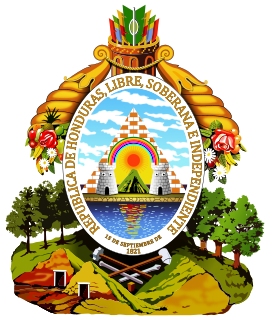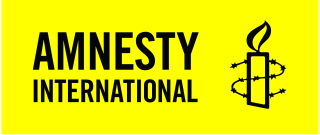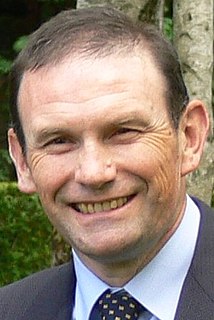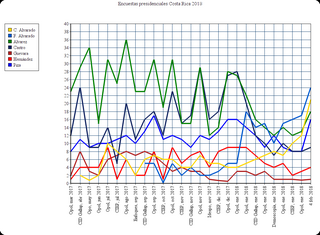| |||||||||||||||||||||||||||||||||||||
| |||||||||||||||||||||||||||||||||||||
| |||||||||||||||||||||||||||||||||||||
 |
|---|
| This article is part of a series on the politics and government of Honduras |
Legislative |
Judiciary |
|
General elections were held in Honduras on November 24, 2013. [1] Voters went to the polls to elect a new President, the 128 members of the National Congress, 298 Mayors and vice-mayors and their respective councilors and 20 representatives to the Central American Parliament.

Honduras, officially the Republic of Honduras, is a country in Central America. In the past, it was sometimes referred to as "Spanish Honduras" to differentiate it from British Honduras, which later became modern-day Belize. The republic of Honduras is bordered to the west by Guatemala, to the southwest by El Salvador, to the southeast by Nicaragua, to the south by the Pacific Ocean at the Gulf of Fonseca, and to the north by the Gulf of Honduras, a large inlet of the Caribbean Sea.

The President of Honduras officially known as the President of the Republic of Honduras, is the head of state and head of government of Honduras, and the Commander-in-chief of the Armed Forces. According to the 1982 Constitution of Honduras, the Government of Honduras consists of three branches: Executive, Legislative and Judicial. The President is the head of the Executive branch, their primary duty being to "Execute and enforce the Constitution, treaties and conventions, laws and other legal dispositions." The President is directly elected for a four year term.

The National Congress is the legislative branch of the government of Honduras.
Contents
- Background
- The two-party system
- Human rights concerns
- Campaign
- Presidential election
- Primaries
- Opinion polls
- President
- Congress
- Conduct
- Results
- President 2
- National Congress
- Aftermath
- References
- See also
The closely watched presidential election saw a field of eight candidates vying to succeed outgoing President Porfirio Lobo Sosa, who is not eligible to run for re-election. Salvador Nasralla, a sports journalist and television personality, and Xiomara Castro, the wife of the deposed president Mel Zelaya, both candidates from newly formed political parties (the Anti-Corruption Party and Libre, respectively) were leading in most of the early polls. However, as the election neared, the candidates of the two traditional parties – Juan Orlando Hernández of the National Party and Mauricio Villeda of the Liberal Party – both surged in the polls.
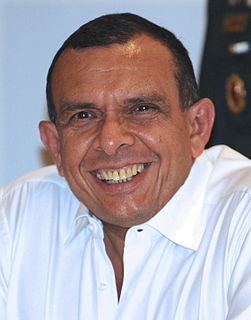
Porfirio Lobo Sosa, known as Pepe Lobo, is a Honduran politician and agricultural landowner who served as President of Honduras from 2010 to 2014. A member of the conservative National Party and a former deputy in the National Congress of Honduras from 1990, he was president of the National Congress of Honduras from 2002 to 2006. He came second to Manuel Zelaya with 46% of the vote in the 2005 general election. After the military ousted Zelaya in a coup d'état, Lobo was elected president in the 2009 presidential election and took office on 27 January 2010.
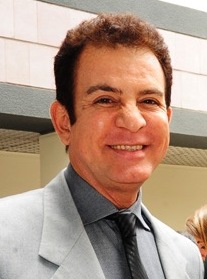
Salvador Alejandro César Nasralla Salum is a Honduran sports journalist, television presenter, master of ceremonies, businessman, and politician. He is the presenter of the TV programs 5 Deportivo and X-0 da Dinero, and has been called "El señor de la televisión". He was the founder of the Anti-Corruption Party in 2011 when he stood for President in the Honduran general election, 2013. He stood again in the Honduran general election, 2017 for the political alliance Alianza de Oposición contra la Dictadura, made up of Liberty and Refoundation and the Innovation and Unity Party. He lost the election, but the Organization of American States called for a new vote amidst widespread irregularities.

Iris Xiomara Castro de Zelaya or simply Xiomara Castro is a Honduran politician. She was a candidate for the 2013 presidential election representing the left-wing Libre Party. The wife of deposed former President Manuel Zelaya, Castro was a leader of the movement resisting the 2009 Honduran coup d'état that ousted her husband from power prematurely.




